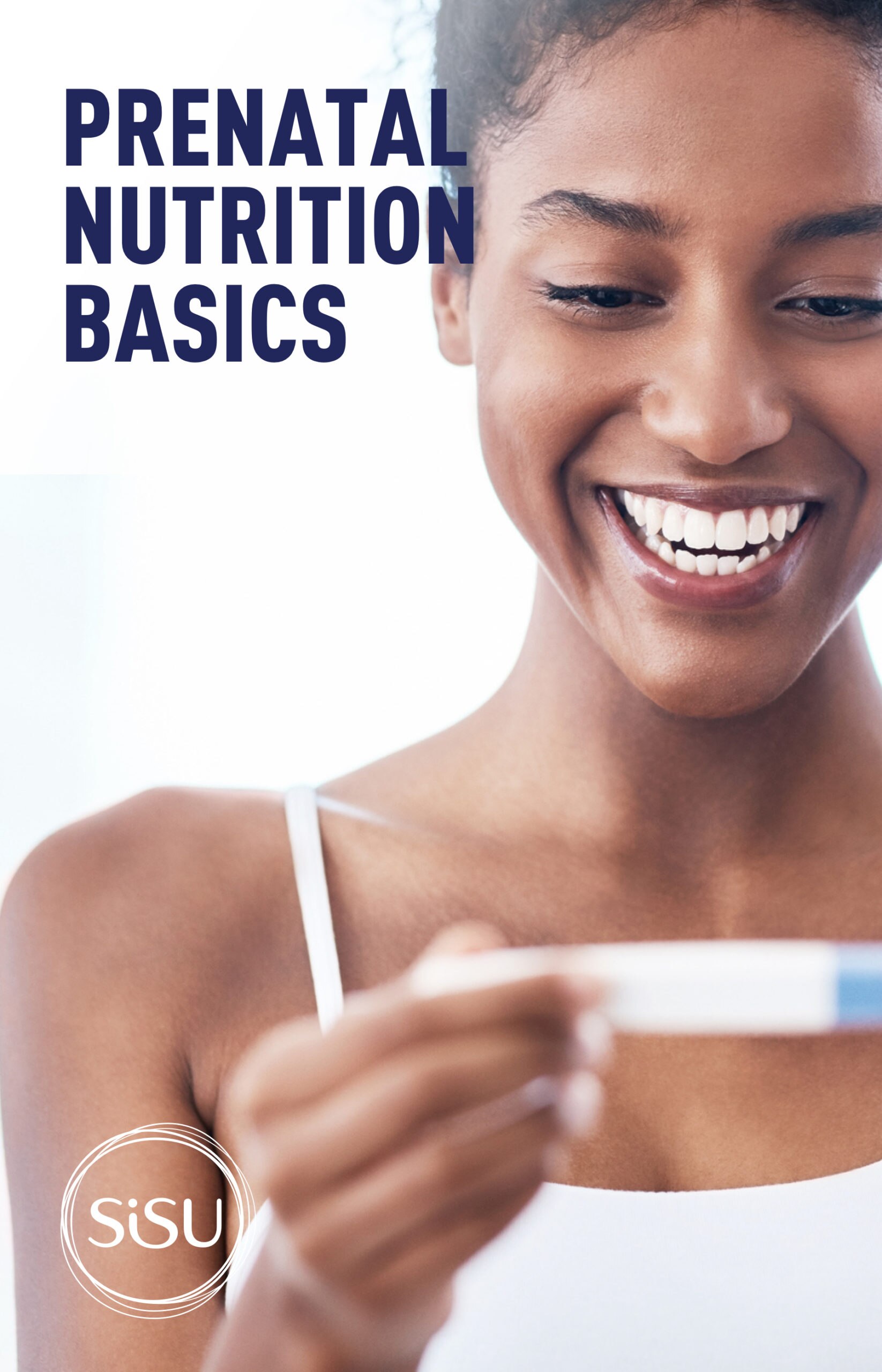

Congratulations! Being pregnant or planning for it is equal parts thrilling and overwhelming. There’s a lot to consider when you’re about to welcome a new baby into the world. From diet to exercise, pregnancy brings unique nutritional needs for both the mother and baby. Addressing these needs early on will help to promote a healthier pregnancy and transition into motherhood.
How to support your health before and during pregnancy
Prenatal care and nutrition are the foundations of a healthy pregnancy, labour, and baby. The following steps will help you prepare your body before and during pregnancy.
1. Visit your healthcare provider
To give your pregnancy the best possible start, schedule a prenatal visit with your healthcare provider.1 As you begin developing this new life, it’s the opportune time to review your family history, manage existing health conditions, ensure your vaccinations are up-to-date and develop a pregnancy plan that includes nutrition, exercise and emotional support.
2. Eat nutrient-dense foods
Consuming a balanced diet rich in quality proteins, carbohydrates, and fats is an important way to support your own nutritional needs and those of your growing baby.
It’s a common misunderstanding that having a baby means you have to eat for two. Canada’s Food Guide only recommends eating an additional two or three servings per day from any of the four major food groups.2
In general, a healthy pregnancy diet consists of the following:3
- A variety of fruits, vegetables, whole grain products, low-fat dairy products, legumes, and lean protein foods,
- Healthy fats like omega-3 fatty acids to help support the baby’s brain and tissue growth. Good food sources include avocados, vegetable oils, fatty fish and seeds, and
- An extra 2 to 3 servings of either vegetables/fruit, grain products, milk/alternatives, or meat/alternatives. A good example of this might look like adding a piece of fruit and ¼ cup of nuts to your day on top of your regular servings.
Generally, it’s advised to:
- Limit foods and drinks with added sugars and salt, and
- Avoid or limit raw seafood, soft cheese, and cold deli meats to prevent potential food poisoning.
3. Stay active
In the past, physical activity was discouraged during pregnancy. Now it’s highly encouraged by medical professionals.
Exercising regularly can improve your mood and stamina and is also linked to better pregnancy outcomes. Women who participate in regular physical activity are less likely to develop gestational diabetes and have unplanned cesarean sections compared to those who don’t exercise.4
What kind of exercise is best during pregnancy?
During pregnancy, light to moderate forms of exercise are generally best. However, if you’re already an active person, then you may be able to continue with high-intensity training. Always consult with your healthcare provider before starting any prenatal exercise routine. The Public Health Agency of Canada recommends starting easy and gradually progressing with any prenatal physical activity.5
Here are some light forms of exercise to consider:
- Swimming and water aerobics
- Walking
- Ellipticals and stair climbers
- Stationary cycling
- Prenatal yoga and/or pilates
- Strength training
4. Reduce stress
Preparing to have a baby is exciting, but it can also be a demanding experience. It’s completely normal to feel more stressed and anxious during your pregnancy. When you’re feeling stressed, it’s helpful to employ stress-reducing techniques, for the health of both you and the baby.6
Here are some strategies to help to reduce stress during pregnancy:
- Eating well: Eating regular and healthy meals can have a positive effect on mood and energy.
- Staying Active: Exercising regularly can also help to boost your mood and decrease symptoms of depression.7
- Sharing your thoughts and feelings: Whether it’s with a therapist, support group or loved one, make sure you don’t go it alone.
- Get a prenatal massage: If you’re expecting, massage is a great way to help soothe and reduce the physical symptoms of stress.8
- Prioritize sleep: Do your best to maintain a regular sleep/wake cycle and nap if you feel tired during the day. Having a bedtime routine can help the body prepare for deep sleep.
5. Stop smoking and drinking alcohol
To promote a healthier pregnancy outcome, Health Canada recommends that women stop drinking alcohol and smoking altogether.9 If you had alcohol during the first few weeks without knowing your pregnancy status, talk to your health care provider. The most important thing is to completely stop immediately after learning of your pregnancy.
6. Monitor your oral health
Taking care of your oral health is an important part of keeping your mouth and baby healthy. Once you become pregnant, the changes in hormone levels can affect the bacteria around your teeth and gums, and increase the risk of developing periodontitis.10 This type of infection has been linked to unfavourable pregnancy outcomes such as preterm birth and low birthweight for the baby.11
The good news is, brushing your teeth twice a day, flossing daily and drinking fluoridated water where possible can promote healthy teeth and gums during pregnancy. Health Canada also recommends scheduling a check-up with your dentist in the first trimester to have your teeth cleaned and checked.12
7. Take prenatal vitamins
Whether you’re planning for pregnancy or are already pregnant, taking a prenatal vitamin can help fill in any nutrient gaps that you may not be receiving from your diet. Those first few weeks of pregnancy are pivotal in the baby’s growth and development. If you’re planning on becoming pregnant, consider taking prenatal vitamins at least 3 months before conception.13
Here are some prenatal vitamins and nutrients to consider:
Folic acid
During early fetal development, folic acid is key in helping form the baby’s neural tube, which includes the spine, brain and skull.
Sisu Folic Acid contains a daily dose of 1 mg folic acid to help prevent neural tube defects when taking before becoming pregnant and during early pregnancy.
Omega-3 fatty acids
During pregnancy, omega-3 fatty acids, and other healthy fats, are important in baby’s brain and tissue growth. And because your body can’t make essential fats on its own, you should be mindful that you’re getting enough during pregnancy.
Sisu Omega 3 1000 mg is a high-potency, concentrated fish oil that contains a 2:1 ratio of EPA to DHA, two beneficial fatty acids that help promote heart and brain function.
Iron
Because the body is going through intense growth, a mother needs to increase her supply of iron to produce new red blood cells and carry oxygen to the placenta and fetus.14
Sisu Gentle Iron helps to form red blood cells and helps pregnant women meet Health Canada’s recommended intake for iron when taken alongside a healthy diet.
Calcium
Calcium contributes to the healthy development of your baby’s bones. Some food sources of calcium include:15
- Green vegetables such as broccoli, bok choy, kale and watercress
- Canned fish with bones (salmon and sardines)
- Cooked beans, legumes and lentils
- Tofu that is “calcium-set”
- Calcium fortified soy and rice beverages

Prenatal multivitamin
Taking an all-in-one prenatal vitamin is a great way to promote a healthy start for the baby.
Each serving of Sisu Multi Expecting helps support women’s nutritional needs before, during, and after pregnancy. It contains essential vitamins and minerals like iron, B-vitamins, Vitamin D, and folic acid and helps with immune function.
Your baby is counting on you to be the source of the nutrients they need to be healthy and strong. Whether you’re planning to conceive or are already pregnant, a healthy routine will help you manage your journey to motherhood.
For monthly health and wellness tips sent directly to your inbox, sign up for our newsletter here!
Always read and follow the product label. Products may not be suitable for everyone.
1 https://www.nichd.nih.gov/health/topics/pregnancy/conditioninfo/prenatal-care
2 https://www.canada.ca/en/health-canada/services/publications/food-nutrition/prenatal-nutrition-guidelines-health-professionals-background-canada-food-guide-2009.html
3 https://www.canada.ca/en/health-canada/services/publications/food-nutrition/prenatal-nutrition-guidelines-health-professionals-background-canada-food-guide-2009.html
4 https://www.bmj.com/content/358/bmj.j3119
5 https://www.canada.ca/en/public-health/services/pregnancy/physical-activity.html
6 https://www.nichd.nih.gov/health/topics/preconceptioncare/conditioninfo/stress#f1
7 https://www.ncbi.nlm.nih.gov/pmc/articles/PMC1470658/#:~:text=Exercise%20improves%20mental%20health%20by,self%2Desteem
%20and%20cognitive%20function.&text=Exercise%20has%20also%20been%20found,self%2Desteem%20and%20social%20withdrawal
8 https://www.sciencedirect.com/science/article/abs/pii/S1353611704000186
9 https://www.canada.ca/en/public-health/services/health-promotion/healthy-pregnancy/healthy-pregnancy-guide.html#a3
10 https://pubmed.ncbi.nlm.nih.gov/18481562/
11 https://pubmed.ncbi.nlm.nih.gov/18481562/
12 https://www.canada.ca/en/public-health/services/pregnancy/oral-health-pregnancy.html
13 https://www.caringforkids.cps.ca/handouts/pregnancy-and-babies/prenatal_health_and_your_baby
14 https://www.healthlinkbc.ca/health-topics/hw194870
15 https://www.healthlinkbc.ca/health-topics/hw194870

